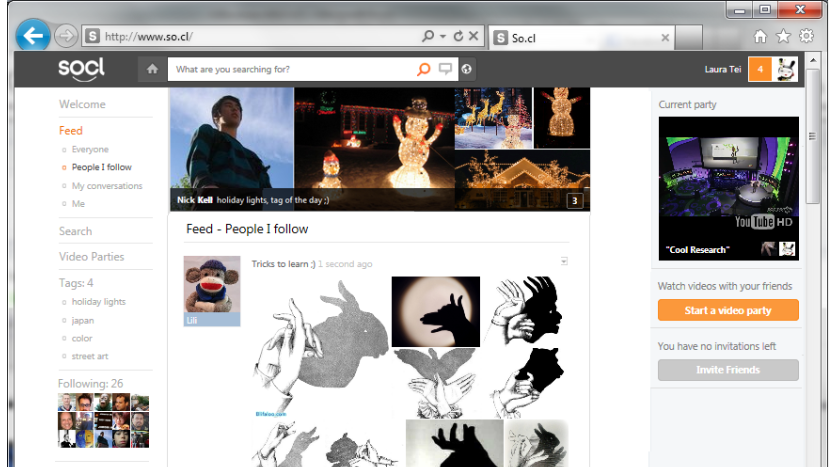Microsoft takes the wraps off its So.cl social-search project

Perhaps the best way to explain what Microsoft's new So.cl project from its FUSE Labs team is to start out with a list of things that it isn't.
According to Microsoft, it's not meant to be a Facebook clone/killer. It's not a Twitter rip-off. It's not a Tumblr or Google+ or Google Currents clone/competitor. It's not a new search engine. It's not something that Microsoft expects to roll into/integrate with SharePoint, OneNote or Exchange/Outlook.
And, surprisingly -- contrary to what the early leaks about it (when it was codenamed "Tulalip") indicated -- it's aimed at a very specific user group: students and academics who are using social media to enhance their learning experiences.
Here's what it looks like. The So.cl user interface:
And an example of a small piece of a So.cl feed:
(click on images above to enlarge)
So.cl (pronounced "social") is a research project that the FuSE team has been testing among a couple of hundred Softies and students in information and design schools at the University of Washington, Syracuse University, and New York University. It's a mash-up of social-networking and search that is designed to get the learning communities to start thinking about how to use collaboration technologies in new ways, according to Lili Cheng, General Manager of FUSE (Future Social Experiences) Labs.
Microsoft is taking the publicity wraps off So.cl on December 15, but it's still in limited, invitation-only form. Those already in the preview will be allowed to invite new members.
So.cl combines ideas the FUSE Labs teams have pioneered in some of their other experimental projects, like Montage (a photo collage app) and Kodu (game programming). I thought there might be some connections between So.cl and Spindex, FUSE's social-feed aggregator, but Cheng said no.
The service, which is built using Bing search programming interfaces (but not Bing itself), allows participants to build posts with photos, video, text and other elements and share them. It also lets participants find others with similar interests and build communities around them. At some point, Microsoft might allow users to create their own social tools built around So.cl, customized for their own groups and communities.
"Twitter began with the blogging community -- those who are good at being clever in 140 characters," said Cheng. So.cl "appeals more to those who are visual, allowing them to explore things more quickly."
Future enhancements already on the So.cl team's plate include tagging improvements and the addition of the ability to share out, on a selected basis, some of the feeds built inside of So.cl.
"We are not building the next Facebook," Cheng said. She also said not to expect So.cl or its concepts to make its way into business-focused collaboration wares from Microsoft. It's more about getting people to think outside the existing collaboration and productivity boxes, she said.
